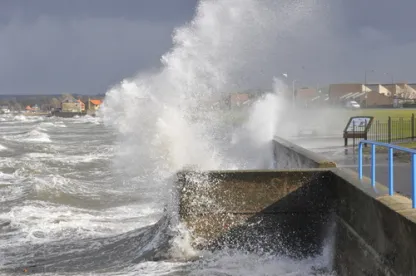We can all agree that New Jersey had a rough winter. This past winter undoubtedly hampered employee commutes and impacted overall productivity at many workplaces. Employers also had to make difficult decisions regarding whether or not to open or close the business and if the business is open, what to do with employees who refuse to commute to work under the inclement weather conditions (i.e., charge the employee an earned paid or unpaid sick day, vacation day, or other leave, or count it as an unexcused absence). Likewise, employees made difficult choices concerning whether to commute to work or risk the loss of paid or unpaid leave.
Recently, Senator Peter J. Barnes III (D-Middlesex) introduced a bill to the Senate Labor Committee that hopes to answer some of the questions that employers and employees face during states of emergency. According to the bill, employers would be prohibited from requiring employees to use any sick, vacation, personal days, or other form of leave of absence that is paid or unpaid during a state of emergency. Employers would also be prohibited from taking adverse action against an employee who is unable to come to work during a state of emergency. The bill, however, exempts public safety employees from these requirements such as police, fire departments, and emergency medical service personnel. Employers who violate the bill may also be subject to a $5000 penalty for the first offense and a $10,000 penalty for each additional offense.
The bill defines a state of emergency as a natural or man-made disaster or emergency in which a state of emergency is declared by the Governor or by a municipal emergency management coordinator. The Governor typically declares a state of emergency when he believes that a disaster will be severe enough to require state aid to supplement local resources in preventing or alleviating damages, loss, hardship or suffering.
While the bill does assist employers and employees with making objective decisions when facing states of emergency, it is unclear what impact the bill will have on small businesses that rely on a handful of key employees to help run the business. Additionally, many businesses in today’s digital age provide employees with the alternative of working at home during states of emergency. It is also unclear how the bill’s requirements will apply to employers and employees under these circumstances. These concerns should be addressed as the bill progresses. We will continue to monitor this legislation.



 />i
/>i

